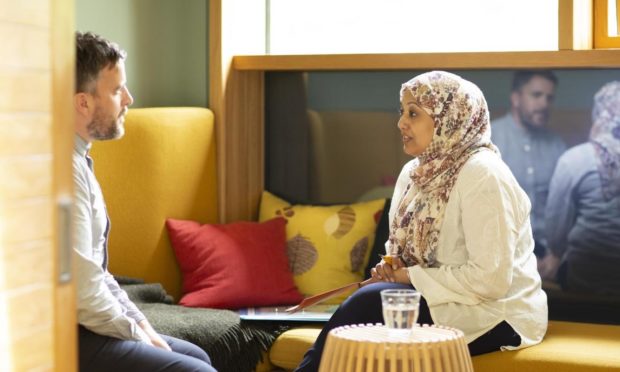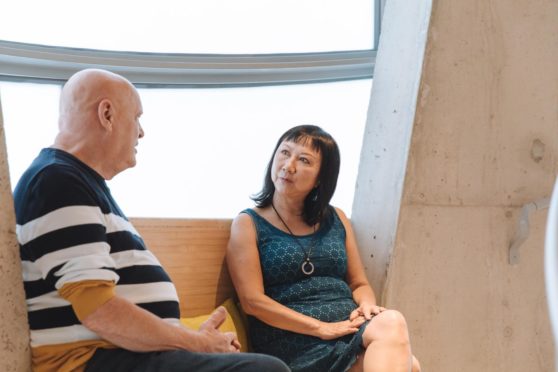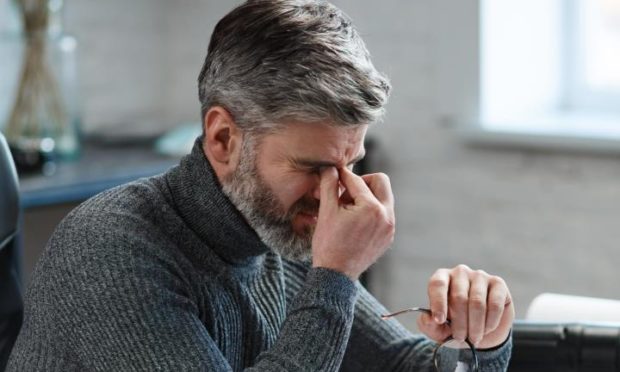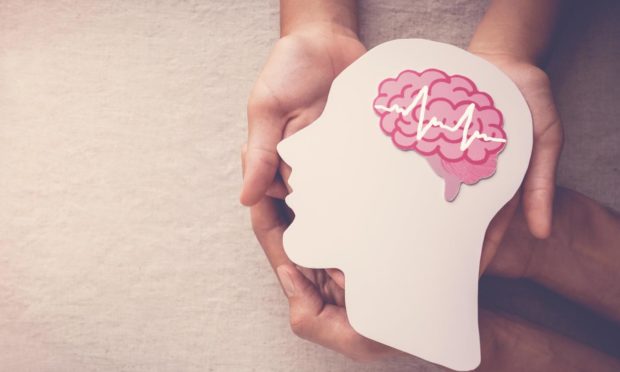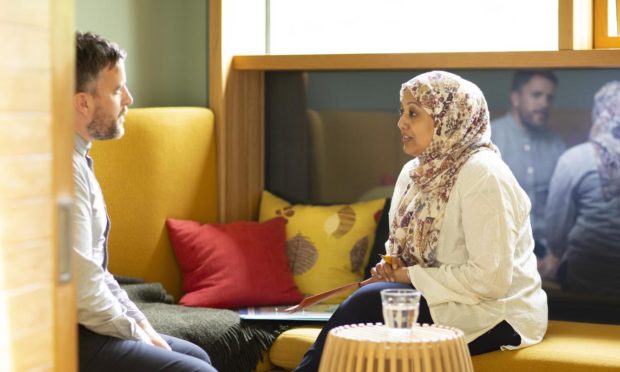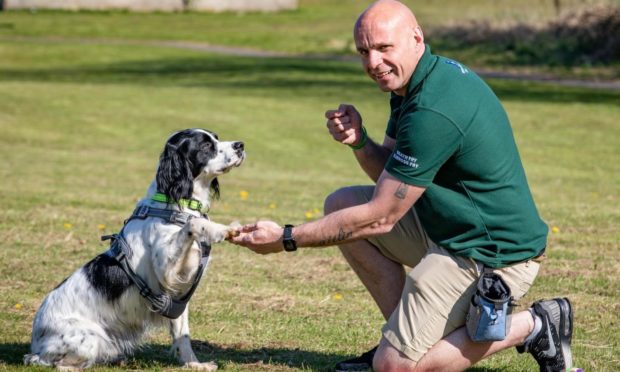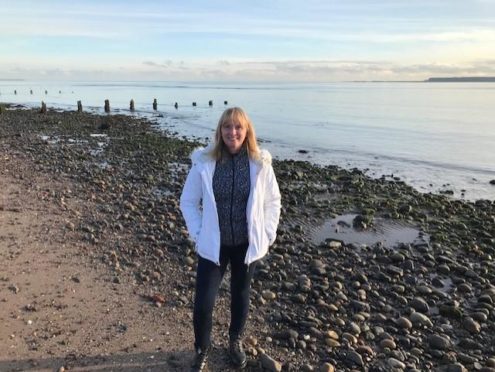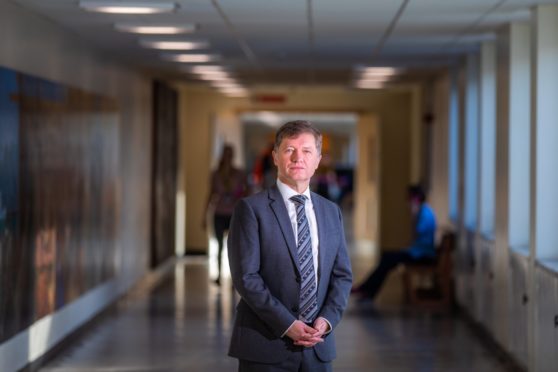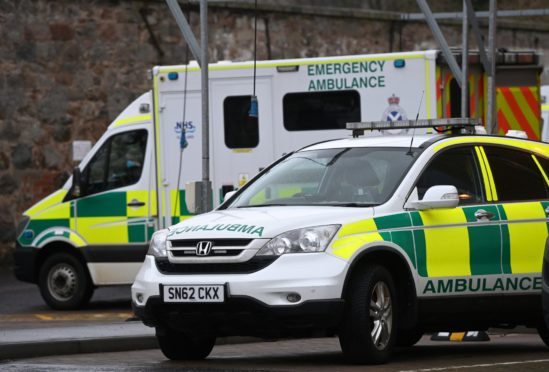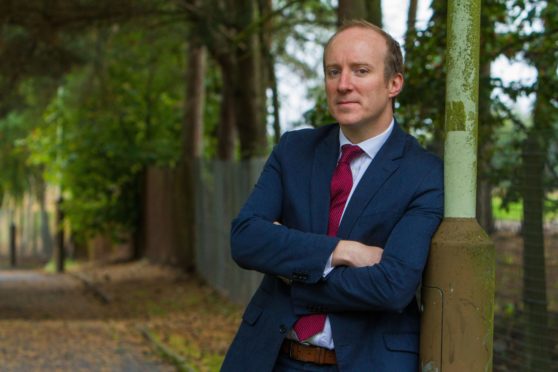A Dundee man has spoken out about the impact of his cancer diagnosis on his mental health, following new research revealing 47% of people with cancer don’t know where to go for emotional support.
New research by cancer charity, Maggie’s, has found 50% of Scottish cancer patients find the effects of the condition on their mental health harder to cope with than the physical impact.

Ewan Bowlby from Dundee was diagnosed with a brain tumour and is supported by the Men’s Group at Maggie’s Dundee.
Ewan said: “Learning how to live with the fear of dying, it’s such an exhausting and unusual thing to experience, especially at my age, and I didn’t have the emotional experience and resources to ask for help, to express what I was going through, to talk about feelings of anxiety and fear.
“It was a gradual process, helped so much by Maggie’s, to extract the joy of the present, the now and not constantly worrying whether I will still be alive in a few months.
“Maggie’s helped to care for me emotionally as well as just treating my symptoms, and that was such a crucial starting point for me to thrive, live and accept the situation I was in.”
Support for mental health
The research by Maggie’s revealed that three in five people across the UK who currently have or previously had cancer feel that the mental challenges the condition brings are harder to cope with than the physical treatment and side effects.
Also, 52% of people with cancer felt there was support for the physical impact of cancer but not the emotional effects.
And more than two thirds (69%) of people with cancer stated that low mood, sleeplessness and feelings of overwhelm, distress, loneliness and isolation were some of the hardest things to deal with throughout their diagnosis and treatment.
These feelings were even stronger post-treatment with 82% stating that the fear of cancer returning, feelings of depression or low mood, pressure to “get back to normal” and feelings of loneliness and isolation were some of the hardest things to deal with following their cancer treatment.
The effects of the pandemic were also felt by those surveyed, with almost half (49%) stating that the combination of Covid-19, shielding, lockdown and their cancer diagnoses had a negative impact on their mental health.
Dame Laura Lee DBE, Chief Executive of Maggie’s said: “We need to wake up to the fact that cancer is a mental challenge as well as a physical one and that people are not getting the support they need.
Karen, Joy and Nancy, our cancer support specialists, are here to listen to how you're feeling, answer any questions you may have and guide you to the right information. Give them a call on 01382 632 999 and they'd be delighted to arrange a time for you to pop in for a chat. pic.twitter.com/kDxnJjijiq
— Maggie's Dundee (@maggiesdundee) November 12, 2020
“This has always been the case and is what we see and hear in our centres every day. But we have 25 years of expertise in helping people with the mental and emotional, as well as the physical challenges of cancer.
“We need to take these figures seriously and make sure as many people as possible get the support they need, now when they need it more than ever.”
